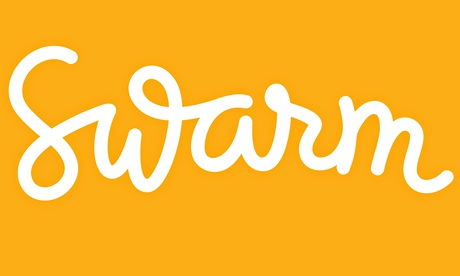
Against the odds, mobile-based app Foursquare has managed to momentarily combat plummeting user figures. Its entry into the race to crack SoLoMo (social-local-mobile) may officially have begun.
Foursquare has recently re-launched as a local discovery service, pivoting away from its origins as a location-based social networking platform. The old check-in function was relegated to a secondary app, Swarm, back in May, after the company made the radical decision to split its service in two.
The shake-up, influenced by check-in’s steady decline, has been heavily scrutinised during the past weeks, with many feeling Foursquare’s number was finally up; but there have been some surprising results.
In just five days, Foursquare leapt from its lowly position of #1,221 among all iOS apps in the US to #394. Its counterpart, Swarm, after a shaky start settled in comfortably at #11. And, while positioning on Android is a little more dubious, both products have experienced increased downloads and usage.
The big brand question
Whether or not this sudden spike is the result of increased publicity – which saw it pushed to the forefront of app store recommendations and update feeds – is still to be revealed. Foursquare has certainly created a buzz and (re)captured some audience, something that marketers may take interest in. But how much will Foursquare really gain from placing itself as a new local recommendation service?
The answer is: probably not a lot. For starters, advertising opportunities remain limited. Businesses can still only advertise to Foursquare users in their direct locale and to those who have expressed an interest in similar businesses. Another remaining feature involves allowing businesses to set up ‘specials’ deals like two-for-one on coffees. But is this really scalable beyond the local café wanting to reach out to and reward a few new customers?
A tough nut to crack
Foursquare has propelled itself into a market that not only has zero guarantee of prolonged success but isn’t even fully-formed yet. GPS technology may be now so commonplace that it can be found in almost every handbag and pocket; but social, location and mobile remains a tough triumvirate to leverage.
In this new, hotly-contested arena, Foursquare faces competition on all sides from the likes of TripAdvisor, Yelp and Google’s mammoth data-driven recommendations. Despite coming up against its own problems, Google looks to be the most likely player to crack SoLoMo with its ubiquitous Maps app. By introducing local recommendations, Google will prove a formidable competitor to the comparatively juvenile Foursquare.
Checking out
Without a doubt, brand interest in check-in behaviour is waning. A few years ago when I was working at DDB, check-in was a vital part of any conversation we had with brands looking at social media strategy. Now, however, it barely gets a mention.
But what about the effect removing the check-in will have on its 50 million-strong audience? Foursquare used to be a masterclass in sticky social media. It was built on a simple concept: to allow users to check-in to locations and map activity, interact with their environment via mobile and locate friends. It was the playfulness of the service and the addictive nature of competing for ‘badges’ and ‘mayorships’ that kept its users coming back for more.
But by downgrading the check-in to what is effectively a sub-product, Foursquare risks undermining the user experience that it spent years perfecting and alienating its loyal audience as a result.
While Foursquare may have temporarily recaptured the public, it’s unlikely this protracted, somewhat confusing, image overhaul will be enough to pique interest when it comes to brands. Instead, a once-beautifully simple, user-focused tech product may have tried to adapt and undone itself in the process.
Will Francis is the founder and director of social media agency Harkable
More stories you may like:
•Foursquare: ‘The way people explore the world is going to change’
•Why Foursquare should be on everyone’s phone
To get weekly news analysis, job alerts and event notifications direct to your inbox, sign up free for Media Network membership.
All Guardian Media Network content is editorially independent except for pieces labelled ‘Advertisement feature’. Find out more here.

